Author and speaker Andy Crouch isn’t Reformed. At least, not all the way.
He came to faith through the charismatic renewal in the United Methodist Church; overall, much of his theology remains Wesleyan and Arminian.
But when it comes to faith and work, Crouch is “100 percent Reformed.”
“I stumbled on the rich Reformed tradition of thinking about faith and work as I began to write my book Culture Making,” he said. “Over the course of 10 years of campus ministry, I had become increasingly uncomfortable with my own ability to give college students a rich, biblically grounded account of why they should be students at all.”
It was an expensive question—Crouch was working for InterVarsityChristian Fellowship at Harvard University, where tuition rose from $23,700 to $33,110 while he was there. (Next year, it’s up to $46,340.)
“Our campus ministry emphasized personal faith commitment, deep Christian community, and service to the marginal and materially poor—all important biblical themes, but of course one could arguably pursue all three just as well, and much less expensively, without getting an Ivy League degree,” he said. “What were the biblical frameworks for thinking about the actual work of students in the laboratory and the library, or even the extracurricular activities of crew or university choir?”
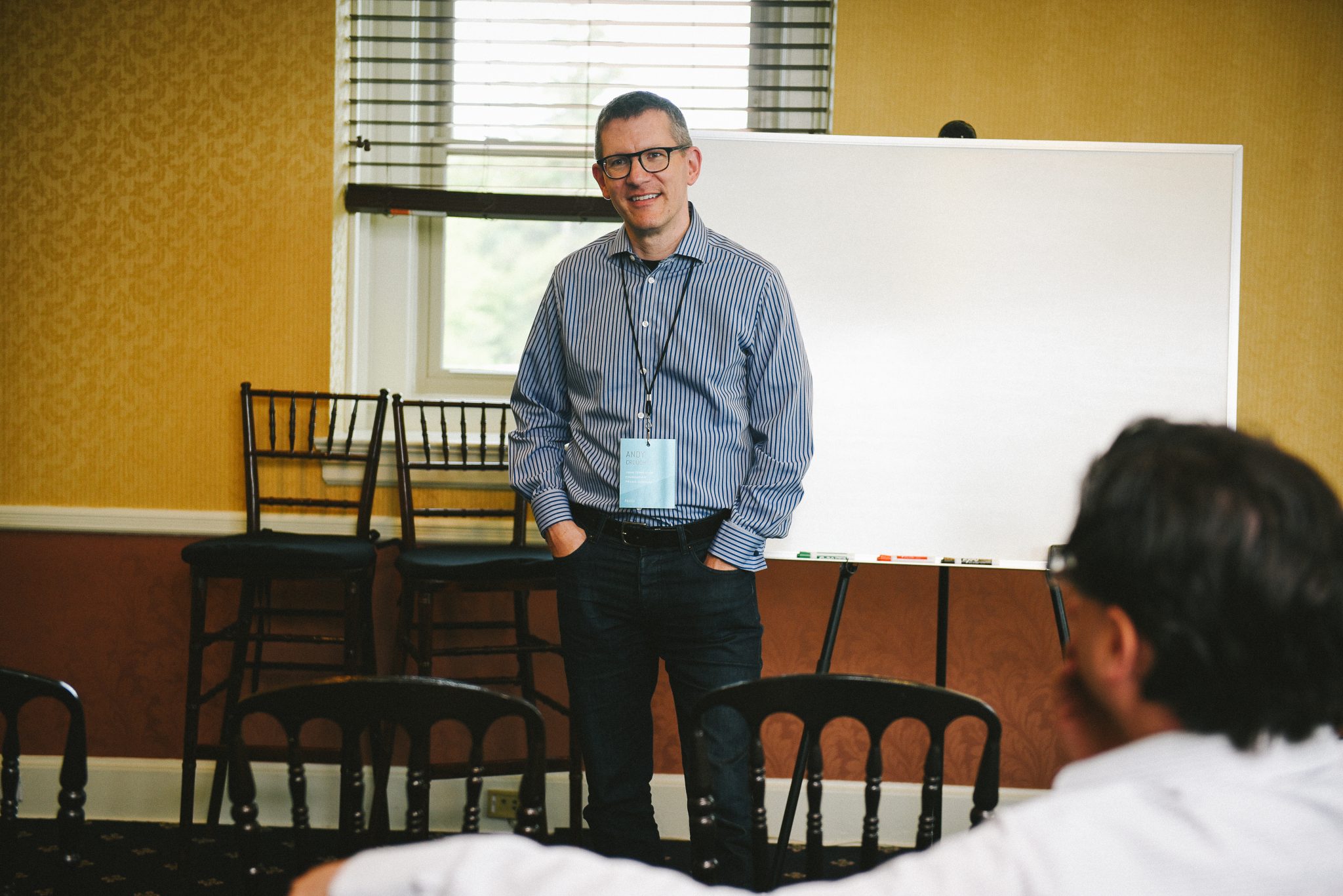
Crouch had read “social constructionist” figures like Peter Berger, but “it wasn’t until I started reading Reformed writers that I found really careful theological work that correlated well with cultural sociology. I’ve certainly been influenced by other streams to some extent—Anabaptists like Yoder and Hauerwas and Ellul (who was technically Reformed but temperamentally more Anabaptist, I’d say), as well as Catholic social teaching—but the truth is that among Protestants especially, the Reformed community has nurtured the most careful thinking about the breadth of human cultural activity.”
In 2008, Crouch released Culture Making: Recovering Our Creative Calling, which argues that Christians can best affect culture not by withdrawing from it, but by making more of it.
His Reformed bent was immediately apparent.
“Andy Crouch makes the case for cultural discipleship by giving us an exciting overview of the drama of creation, fallenness, and renewal,” Fuller Theological Seminary president emeritus Richard Mouw wrote. Tim Keller wrote that it was “one of the few books taking the discussion about Christianity and culture to a new level,” while LifeWay Christian Resources publisher and TGC blogger Trevin Wax called it “a landmark work that will create a new culture of its own within evangelicalism.”
The Reformed community has nurtured the most careful thinking about the breadth of human cultural activity.
Wax was right. The book ended up in the hands of two young entrepreneurs looking to help other entrepreneurs connect their faith to their work in a meaningful way.
“Culture Making was one of the most formative texts for us, as far as building practices and looking at the culture,” said Dave Blanchard, who together with Josh Kwan founded Praxis to support Christian entrepreneurs in 2011.
In turn, Praxis is beginning to form a new generation of Christian entrepreneurs. In seven years, they have taught and mentored hundreds of people, whose start-ups have attracted $40 million from 500 investors, created 2,800 full-time jobs in more than 40 countries, and generated $200 million in annual revenue. Almost all of them have stayed in business (92 percent) and all have listened to, read, and talked through how their faith connects to both the big picture and everyday details of their work.
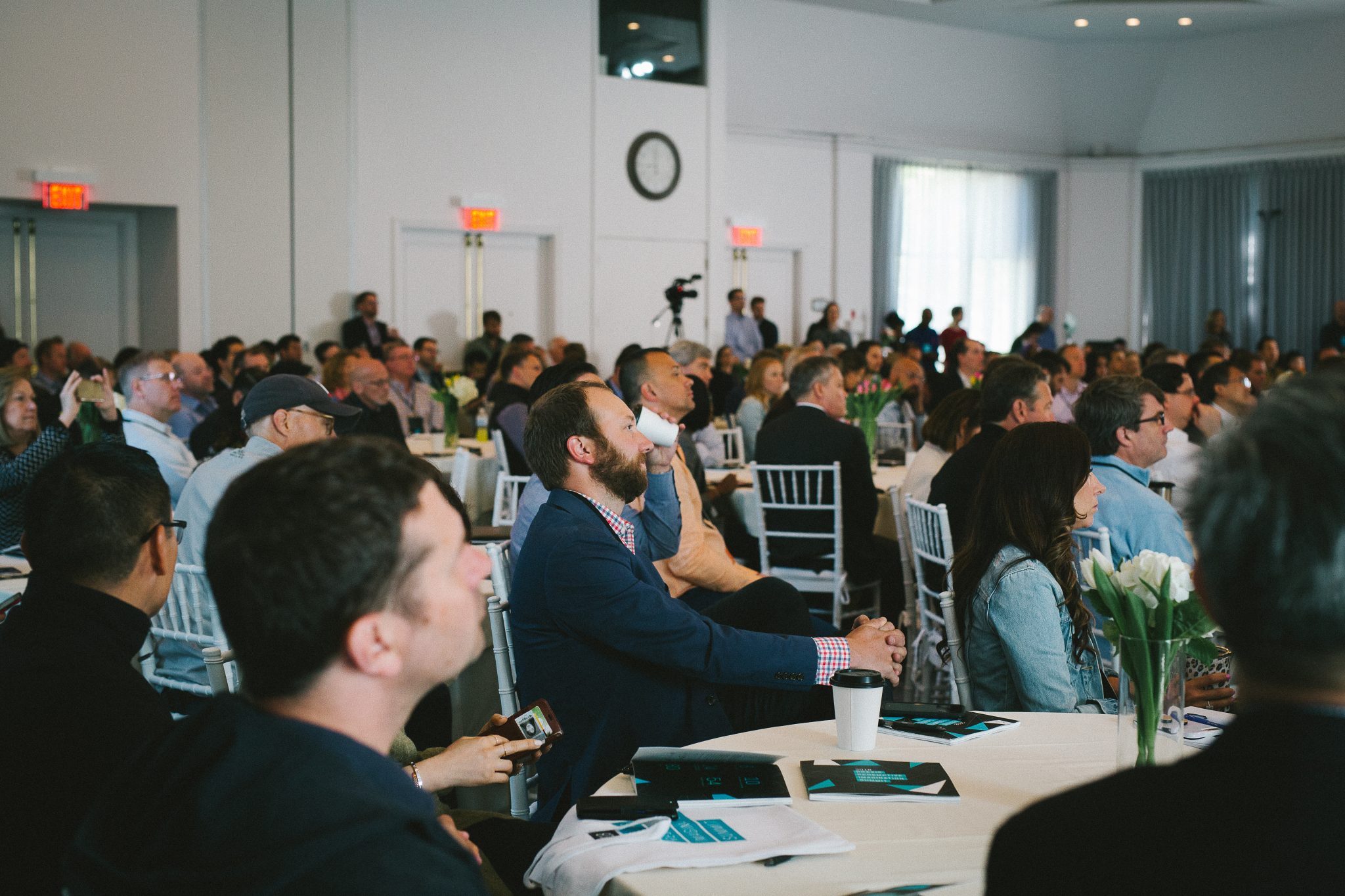
Then in March, Praxis made an almost inevitable hire, bringing on Crouch to strengthen and lead thinking about theology and culture.
“Bringing Andy in is really thickening our ideas around redemptive entrepreneurship,” Blanchard said. “Praxis in some ways is giving shape to how we think the church should be making sense of the culture and what we should do about it.”
The timing, it seems, is perfect. Crouch is laying out a thoughtful biblical and theological perspective on faith and work, and Praxis is using it to throw up a flag to gather Christian entrepreneurs, at the same time a new generation of workers is influencing the job market.
And the millennials—the largest workforce wave since the Boomers—aren’t looking to spend their 8-to-5s climbing a corporate ladder to “matching BMWs and in-ground pools.”
Instead, like Crouch and Praxis, they’re looking for jobs that are creative, socially conscious, and meaningful.
In other words, the time for Christian conversations about faith and work couldn’t be better.
Millennials
The working habits of millennials are hard to pin down. They’re both under-motivated (a quarter live at home and don’t work or go to school) and workaholics (they’re less likely to take vacation days—and feel guiltier about it—than other generations). They want a “fun and social” work environment (88 percent), but would sacrifice that in favor of a business that makes a lot of money (62 percent). They’re more relaxed—wearing less formal clothing and working from home—but also more anxious (27 percent said they were stressed at work, compared to 12 percent of Boomers).
And they’re both entrepreneurial (62 percent have a dream business they’d love to start) and have fewer start-ups than previous generations. Two years ago, a research and advocacy group for entrepreneurs told the U.S. Senate that millennials are “on track to be the least entrepreneurial generation in recent history.”
It’s probably too early to write them off, though, given that most entrepreneurs start their businesses in their late 30s or 40s. “The millennial generation may be like a dormant volcano of entrepreneurship that will erupt in about a decade,”Atlantic senior editor Derek Thompson wrote.
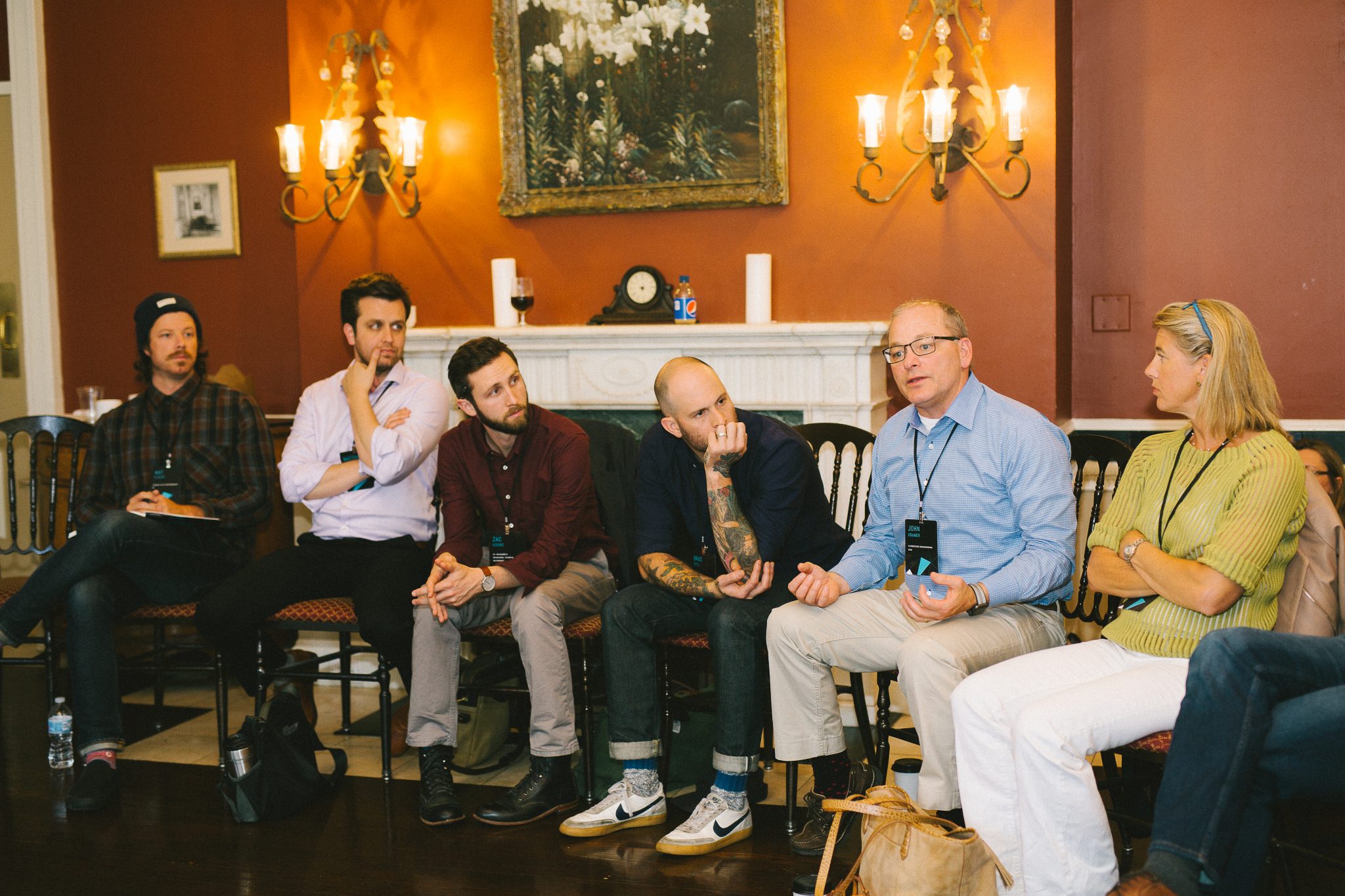
But even if millennials aren’t flooding the marketplace with start-ups, their sheer numbers—they’ll make up make up 75 percent of the work force by 2025—and their social consciousness are affecting conversations about work.
A whopping 94 percent of millennials want their “skills to benefit a cause”; three-quarters said they’d choose to work for a socially responsible company even if it paid them less (much higher than the 55 percent of average Americans). Nine out of 10 would switch product brands to support a cause.
This desire stems “in some ways from the retreat of Christendom,” Crouch said. “When everything in society and church fit together—at least nominally—you didn’t have to think as much about how your work connected to your faith. It was all implicitly part of a background social contract where good people went to church and then during the week they went to work, and their businesses didn’t do anything terrible—at least not that we decided to notice.”
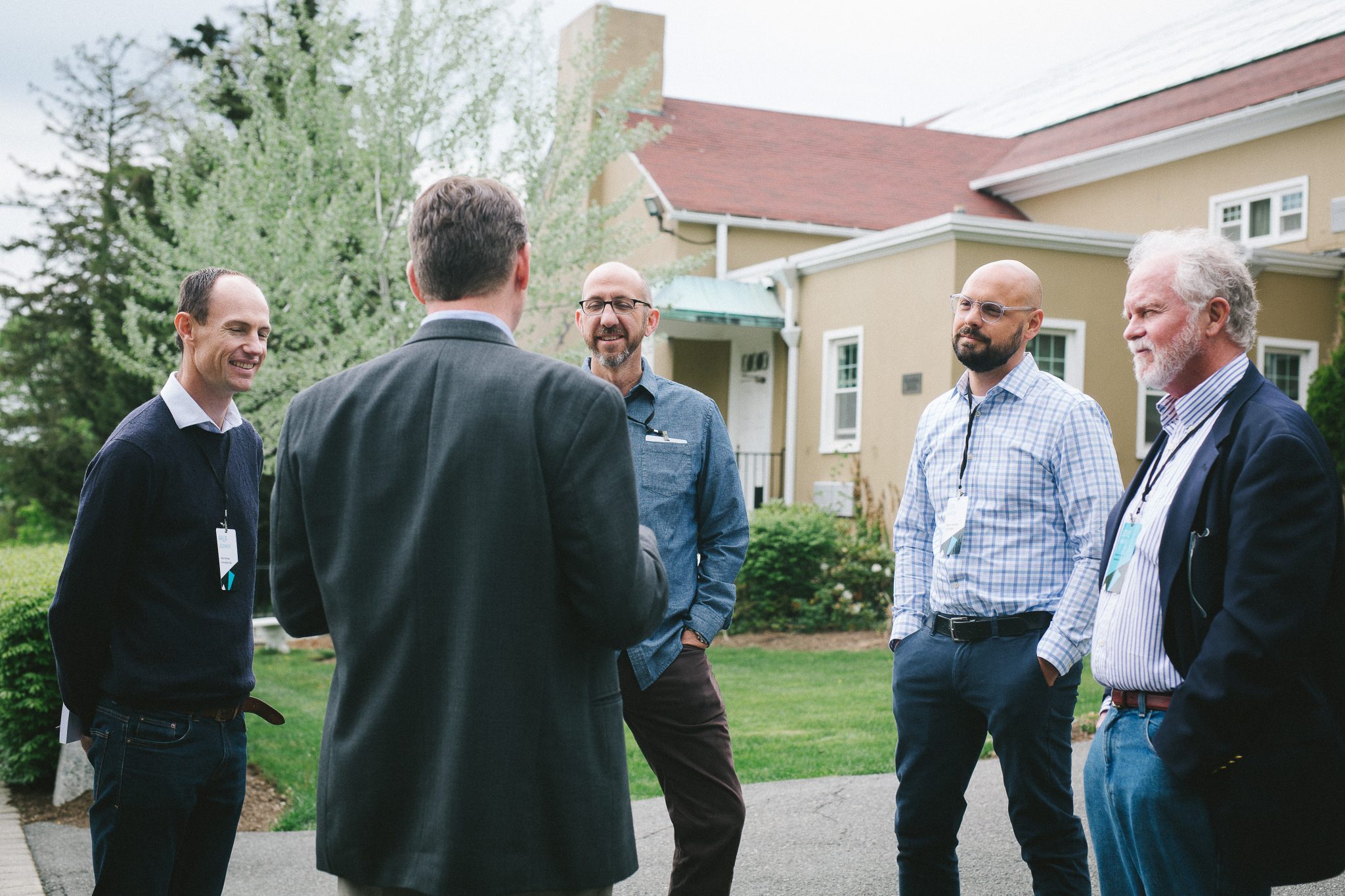
But as that tie to traditional Christian culture loosened, people started to ask different questions about work, Crouch said. They also started to require a lot more from it.
“As the broader culture loses even a nominal connection to religion, where do you find meaning?” he asked. “The location of meaning has shifted to work. And so our expectations for work are much higher.”
Added to that, the number of college graduates is rising (33 percent of Americans in 2016, compared to 4.6 percent in 1940). “Education prepares people to imagine a life of mobility and to attach meaning to their work,” Crouch said. “Some people have always done that, but now it’s becoming much more the average experience. . . . All of this has raised the question of how faith connects to work.”
Serial Entrepreneur
Born in 1980, Dave Blanchard skims the top edge of millennialism. (Pew Research Center defines millennials as those born between 1981 and 1996.) The son of a Baptist preacher, he’s been entrepreneurial since he started renting out his garage to his friends in second grade so they could have a place to sell each other baseball cards.
He’s what’s called a “serial entrepreneur”—by age 28, he’d already started and sold two companies and was working to help other entrepreneurs at a global design company called IDEO.
While there, he started “coming back to faith in a serious way,” and looked around for some of that millennial purpose—only he wanted it to be deeper and more purposeful. He needed an organization that would help Christian entrepreneurs connect their work to their faith.
“They’re doing what they’re doing because of their faith,” he said. “They’re wrestling with issues of calling. They’re looking for people to share life experiences that go down to the core of their value set.”
But while he could find them great business mentors, and great spiritual mentors, it was harder to find people who had “fused these together in meaningful ways.”
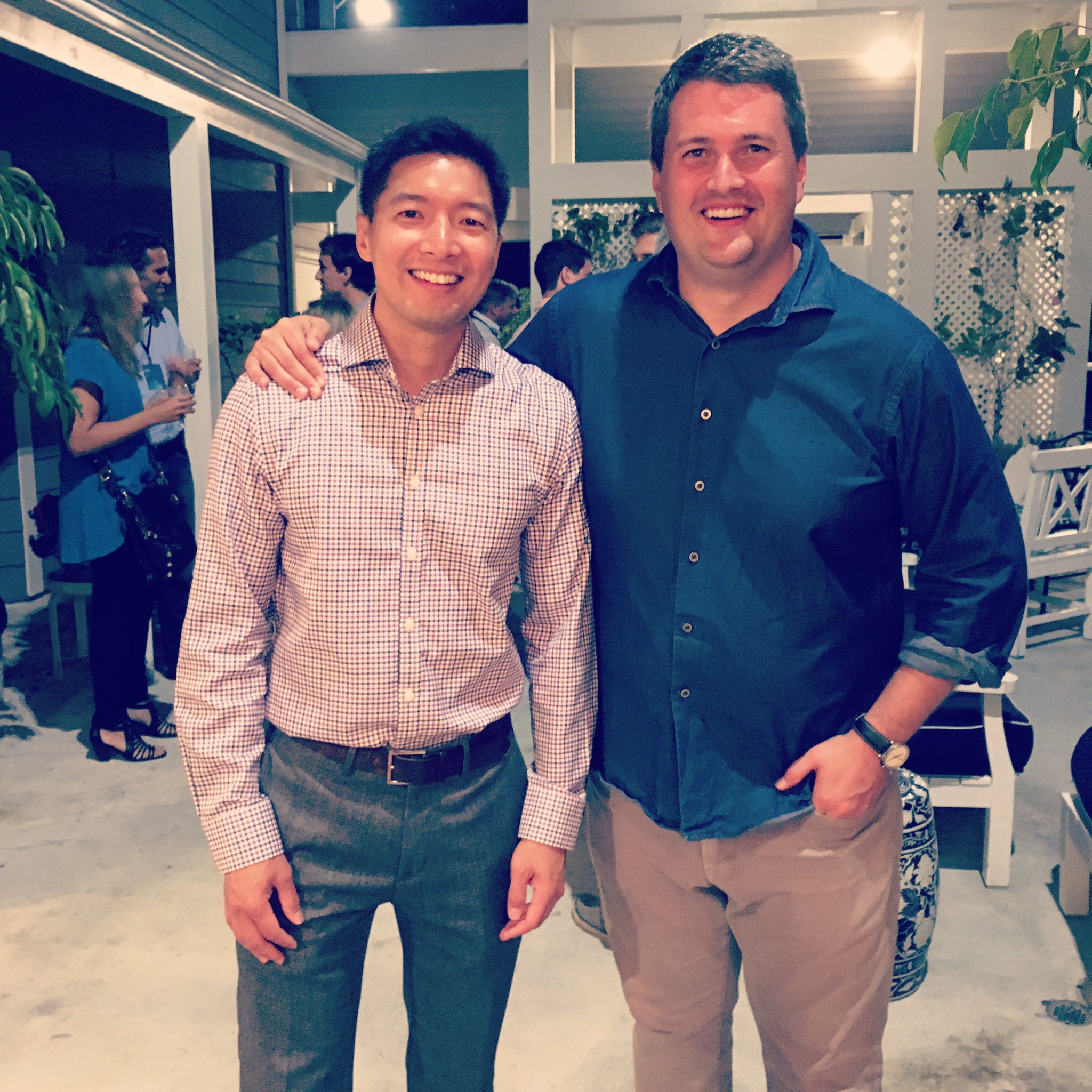
Then in 2010, a mutual friend introduced him to Josh Kwan, a journalist with an MBA who was working as a director of international giving for a Christian family foundation.
“He was granting money to non-profits and social enterprises and seeing a similar opportunity to support Christian entrepreneurs,” Blanchard said. It didn’t take long before the two realized they were seeing the same gap.
They spent a year calling everyone they could think of—about 150 people—who might be interested in mentoring entrepreneurs, being a mentored entrepreneur, or funding the initiative. “About six months in, we thought, There’s something here.”
The hardest part wasn’t finding mentors—there are networks and organizations for Christian businesspeople, and once you find one, they usually can point you to more.
But entrepreneurs were a lot harder to locate.
“They weren’t naturally to be found in any single environment,” Blanchard said. “They have their heads down, building their thing.”
For a while, Blanchard and Kwan wondered if they were even there. “Some mentors would say to us—especially those entrenched in pockets of secular excellence—‘Are there actually enough Christians doing interesting things out there?’
“We’d say, ‘Gosh, we hope so.’”
Christian Entrepreneurs
Blanchard and Kwan filled up their first class of 12 and launched Praxis—praxis is Greek for “action”; Blanchard and Kwan mean it as “faith in action”—in 2011. Then they scraped together another dozen, and then another. It got easier and easier. In 2014, they had enough to split into two cohorts—non-profits and for-profits. (They still cap at 12 each, which is “the right size for everybody to get to know each other.”)
“Probably two years ago we stopped concerning ourselves with whether there would be another class the next year,” Blanchard said. It turned out there were Christian entrepreneurs doing interesting things—“that is one of the most encouraging things to us as an organization and to the broader community.”
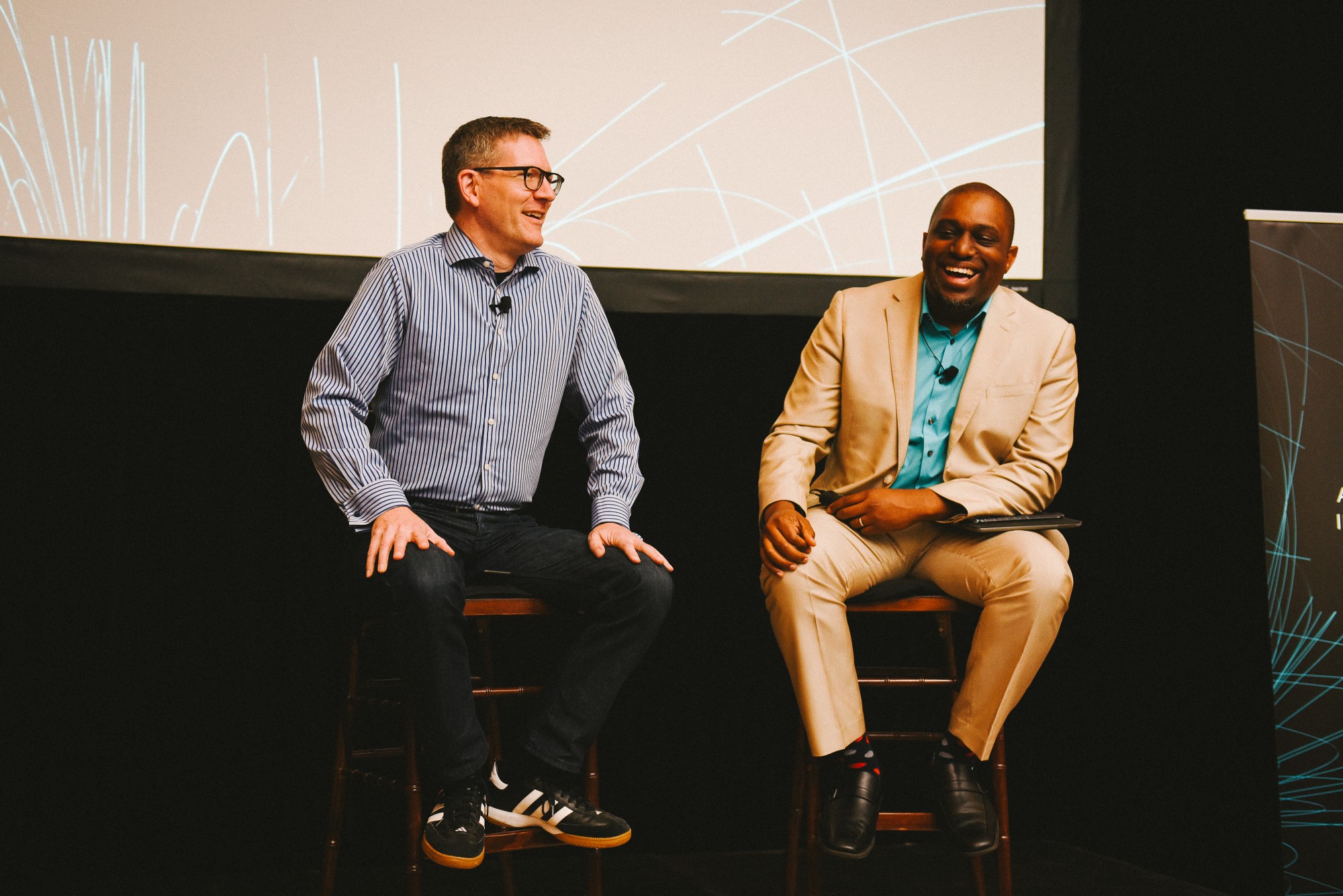
In this year’s class, for example, two entrepreneurs are building a hotel where each room supports a Compassion child, the internet fee fights human trafficking, and the televisions block pornography and offer socially conscious films instead. A car wash fights poverty with a concrete and quick path for advancement (management and $69,000 a year within 18 months) and flips the paycheck system—paying before two weeks of work instead of after—to mimic how we work in gratitude to God instead of for rewards.
And by handing out computer chips to homeless people—allowing those passing by to read their story and donate funds restricted to preapproved partners and nonprofits—two Christian entrepreneurs are getting the homeless to counselors and have saved the city of Seattle an estimated $600,000.
Those are just the for-profits. Non-profit groups range from Justin Giboney’s AND Campaign and Michael Wear’s political advocacy organization Public Faith to Hiinga, which provides biblical counseling and microloans to small- and medium-sized enterprises in East Africa, and Chosen & Dearly Loved, which provides support to prevent abandonment and encourage adoption of those with special needs.
“There are faithful Christians who are called to amazing things,” Blanchard said. And, he found, they’re hungry for “a place to gather to process the questions that are deeply on their heart.”
Theological Orientation
The first Praxis program was an accelerator for early-stage founders. It works much like its secular counterpart—offering half a year of mentoring, help with business design, and introductions to donors and investors—but everything is rooted in a Christian perspective.
“It’s very important for us not to compartmentalize the two [faith and work],” Blanchard said. He and Kwan didn’t want a Bible verse tacked on at the end, or a separate faith talk at a conference. “When people are talking about fundraising or hiring and firing, we want to talk about those from a faith perspective. We talk about the theological orientation and norms we want to push back on.”
One example: Praxis favors faithfulness over results. “The world is saying, ‘If you didn’t get the results, you didn’t do it the right way,’” Blanchard said. Emphasizing faithfulness “ends up being a release valve for a lot of entrepreneurs. They feel this pressure to go as fast as possible toward their goal. We’re pro ambition as long as it’s holy ambition. But when it starts to exhaust and burn out the founder, it stops being a witness.”
We’re pro ambition as long as it’s holy ambition. But when it starts to exhaust and burn out the founder, it stops being a witness.
In May, Praxis released its Rule of Life, a set of guidelines that help to clarify practical ways Christians in the workplace can think and act as a witness. (If the language sounds like Crouch, it’s because he was the principal drafter, though it was “very much a collaborative effort.”)
Praxis asks its entrepreneurs to consider committing to the rule, which includes giving away a minimum of 10 percent of their gross income, disengaging from technology for a time each day, and praying daily and at times of major decisions.
It also asks for a sacrifice of authority so others can advance (this comes straight from Crouch’s 2016 book Strong and Weak: Embracing a Life of Love, Risk and True Flourishing, which won a TGC book award), a pursuit of economic and ethnic diversity among those they mentor, and (hardest of all for a group of people who feel both external pressure and a powerful internal drive) a complete day of rest each week.
“Praxis changed my life,” said Jessica Kim, who has started and sold two companies and is working with Praxis on putting together her third. She bounces with energy, moves her hands a lot, and came up with an idea to add to her new website over our 50-minute breakfast.

“I was caught up in the tech start-up hustle, feeling like I didn’t have time for anything other than work,” she said. “I had cut out accountability, I didn’t have time for Bible study, and I kept thinking, I just need to finish this next push.”
Kim was on her way to burnout (“I knew I had to make changes”) but had to be persuaded to join a Praxis cohort (“I initially said no because I was skeptical”).
She’d been to faith-based or church-based conferences on business before, and they seemed a little too theoretical. (“Okay, but I just had to fire three people. How do I do that with integrity?”)
“From the first meeting, Praxis rocked my world,” she said. “It was literally a wake-up call. . . . Being an entrepreneur is not a career. It’s a worldview, a lifestyle, the way I see living out my faith. For the first time I met people and heard content and saw 2x2s [Crouch’s way to lay out authority and vulnerability] describing this.”
Steve Dziedzic feels the same way. A Praxis business mentor before he was a student (he sold his first company to XO, best known for its wedding app The Knot and pregnancy app The Bump), he wasn’t sure he needed to go through the program when he hit on the idea for another app (this one, called Lasting, is like “a FitBit for your marriage”).

“But after the first gathering, my mind was blown,” he said, miming an explosion with his hands. “As a mentor, you aren’t immersed in the Jon Tyson talks.”
Tysonis the lead pastor of the Church of the City in New York and Praxis’s spiritual director. “Jon says things like, ‘Man, you Praxis fellows are the most capable fellows who are the worst in the world at the easiest things in life,’” Dziedzic recounts. “He’s like, ‘I have people asking me, “Hey, Jon, how do I pray more?” Just pray. “Hey, Jon, how do I spend more time with my kids?” Spend more time with your kids. “How do I rest?” Are you kidding me?’”
It’s eye-rollingly easy advice that’s easy to forget when you’re in the intense push of birthing a new business.
“Stuff like that is beaten into you,” Dziedzic said. “It’s unbelievably good.”
Praxis helped him remember that God is involved in individual business deals, that ignoring God means missing out on business opportunities, and that being a Christian worker means that “God needs to be with my fingers when I design a screen, he needs to be with my mind as I write content, he needs to be in the center when I’m interviewing a new candidate.”
Redemptive Imagination
The flare Praxis threw up worked. More than 1,000 people—including 250 mentors, 500 investors, and 200 accelerator alumni—are actively involved with them in thinking through and practicing redemptive entrepreneurship. More than 150 businesses and nonprofits have been accelerated in 40 countries. The $40 million in capital investments has multiplied to $200 million in total revenue.
In 2014, Praxis started an academy for college students (they gather 200 from 80 schools for a week each summer) and a lab for experienced entrepreneurs. They’ve developed video course, a journal, and playbooks with exercises and case studies.
And Praxis is just one bubble in a movement that’s starting to boil. One of the first on the scene was the Center for Faith & Work (CFW), started by Tim Keller’s Redeemer Presbyterian Church in New York City 15 years ago. In January, it joined Redeemer City to City in order to equip and connect “Christians around the world in faith-and-work integration.”
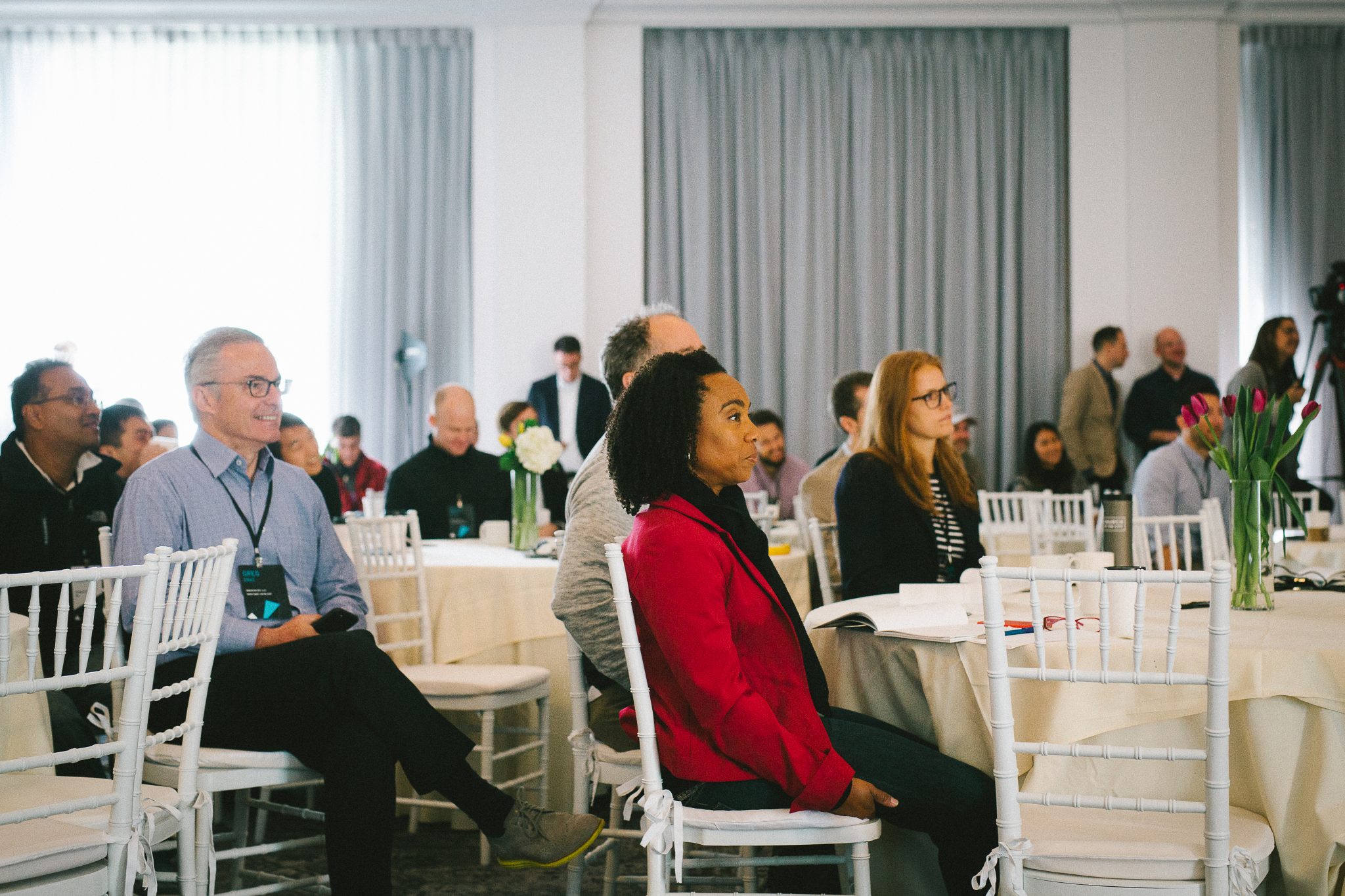
CFW’s influence has spread nationwide, from the Nashville Institute of Faith and Work, launched in 2015 out of Christ Presbyterian Church, to the New City Fellows, launched in Raleigh in 2016 under the leadership of CFW founder Katherine Leary Alsdorf. (She’s also a Praxis speaker and mentor.)
In 2007, the Theology of Work Project, which produced the Theology of Work Bible Commentary, was founded. In 2011, the Institute for Faith, Work, & Economics was incorporated to research biblical and economic principles. In 2015, Made to Flourish, which equips pastors to think about faith and work, was started out of Christ Community Evangelical Free Church in Kansas City.
These groups are welcoming Praxis to the faith and work discussion.
“Praxis is helping a new generation of entrepreneurs imagine how the entirety of their businesses, from operations to supply chains to policies to developing people can serve a redemptive purpose,” said Made to Flourish executive director Matt Rusten. “But their work isn’t only inspiring entrepreneurs. A larger group of marketplace Christians, pastors, and non-profit leaders are taking note of how to cultivate a redemptive imagination in the places they work.”
Those people are “helping to spread, as C. S. Lewis might say, a ‘good infection,’ integrating the good works to which Christ has called us with good work, well done.”
Involved in Women’s Ministry? Add This to Your Discipleship Tool Kit.
 We need one another. Yet we don’t always know how to develop deep relationships to help us grow in the Christian life. Younger believers benefit from the guidance and wisdom of more mature saints as their faith deepens. But too often, potential mentors lack clarity and training on how to engage in discipling those they can influence.
We need one another. Yet we don’t always know how to develop deep relationships to help us grow in the Christian life. Younger believers benefit from the guidance and wisdom of more mature saints as their faith deepens. But too often, potential mentors lack clarity and training on how to engage in discipling those they can influence.
Whether you’re longing to find a spiritual mentor or hoping to serve as a guide for someone else, we have a FREE resource to encourage and equip you. In Growing Together: Taking Mentoring Beyond Small Talk and Prayer Requests, Melissa Kruger, TGC’s vice president of discipleship programming, offers encouraging lessons to guide conversations that promote spiritual growth in both the mentee and mentor.

































